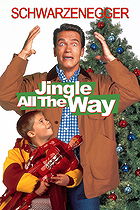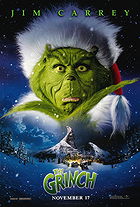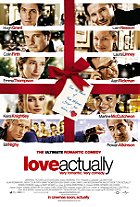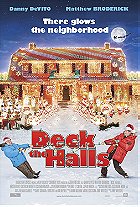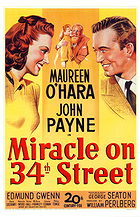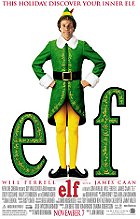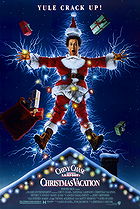After creating the first feature-length animated movie in history with 1937's Snow White and the Seven Dwarfs, Walt Disney followed up the success of this risky gamble with Pinocchio - a morality tale based on the serialised stories of Italian author Carlo Collodi about a mischievous puppet who longs to be a real boy. Building on the equipment and techniques developed for Snow White, Pinocchio was released in 1940, and solidified the studio's reputation as the premiere producer of animated entertainment. It was one of the five early animated masterworks Disney presided over at the height of his powers, and decades after its initial theatrical release it remains a technical and emotional marvel which has lost practically none of its appeal, humour or horror.

Told through the fourth wall by the lovable Jiminy Cricket (Edwards), the story is an extremely familiar one, and concerns a lonely woodcarver named Geppetto (Rub). He lives in his workshop with his kitten Figaro and goldfish Cleo, and dreams of having a son. Upon creating a magnificent wooden puppet which he names Pinocchio, Geppetto receives a visit from The Blue Fairy (Venable) who brings the little puppet to life and promises Pinocchio he'll become a real boy if he learns about bravery, loyalty and honesty. The rest of the narrative tracks the naïve, wooden young lad as he is caught up in a series of adventures which put these attributes to the test, while Jiminy Cricket - who has been appointed Pinocchio's conscience - tries to keep him out of trouble.
Chief among the most uneasy, tense sequences of Pinocchio occurs when the titular character is lured to a mysterious place called Pleasure Island whereupon he encounters a number of other young boys. Initially the tone is darkly comical as the lads are allowed free reign to do whatever they want (this involves drinking beer, eating cake, smoking cigars and destroying things). But directors Hamilton Luske and Ben Sharpsteen (who also worked separately on such other Disney animated classics as Dumbo, Cinderella and Peter Pan) slowly begin to build levels of unease; suggesting with ominous imagery that something is not quite right. Yet, the film balances these darker elements with humour and wit, most of which is courtesy of the wise-cracking, but ultimately humble and attentive Jiminy Cricket, who implores viewers at the film's beginning to believe in the magic of wishing upon a star. He's among the most memorable Disney creations: not a mere sidekick, this little guy is the narrator as well as the crucial link between the movie and the audience (he often breaks the fourth wall by speaking directly to an audience, which was a rarity in 1940s cinema). Added to this, Cliff Edwards' vocal performance as Jiminy hits all the right notes.

Naturally, another great asset of Pinocchio is the visual appeal. Entirely hand-drawn in a period preceding computer animation, this movie is a dazzling mixture of impressionism and realism, replete with striking colours and an exquisite attention to detail. The artists at Disney played with elements of light & shadow, and managed to create vivid, three-dimensional landscapes inhabited by an array of animated characters. It's apparent that Walt and his crew hadn't perfected lip motion at the time of Pinocchio, but virtually every other aspect of fluid motion animation had been nailed. Furthermore, a variety of animation techniques (now taken for granted) were actually invented for this film. The underwater sequences and animated backgrounds included in this early masterwork helped add depth to what was formerly a fairly flat medium. The intricate details here would be praiseworthy even if they were digitally created...but every frame was manually drawn, inked, coloured and photographed in sequence for Pinocchio. It's a marvel. For those wanting to experience hand-drawn animation at its early apex, this is a movie to be savoured.
Yet, even with all its strengths, this is an inherently flawed movie. Due to the serialised nature of the source material, Pinocchio is divided into vignettes, resulting in a string of unconnected fables lacking a compelling story (and, more importantly, momentum). It's also the most consciously moral of the Disney classics (once again remaining true to the source material). While other Disney films are endowed with messages and lessons, Pinocchio is a little too preachy at times. Lazy narrative elements are mixed in as well, such as the fact that how Geppetto and his companions end up in the belly of a whale remains a perplexing mystery, and that Pinocchio finds out about his father's misfortune because he receives a note that's conveniently dropped by The Blue Fairy. Naturally, copious amounts of Disney syrup have been applied here, which does at times grow pretty overwhelming. The film of course ends with an obligatory happy ending, but it admittedly feels well-earned.

In spite of its flaws, Pinocchio remains integral in the history of animation. Sure, it was the second feature-length animated movie in history behind Snow White and the Seven Dwarfs, but movie-goers were still sceptical about a cartoon keeping an audience hooked for its entire runtime. If Pinocchio was a failure, it would have proved just as devastating to the company, as Snow White would've been if it hadn't been received so positively. Fortunately, the film was a deserved hit which earned several Oscars (including Best Original Song for When You Wish Upon a Star - the Jiminy Cricket ballad that became the theme for Walt Disney enterprises). By some miracle, too, Disney also managed to release the legendary Fantasia later in the same year.
7.8/10
 Login
Login
 Home
Home 183 Lists
183 Lists 1665 Reviews
1665 Reviews Collections
Collections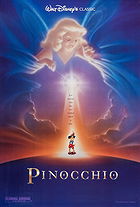
 0 comments,
0 comments, 


